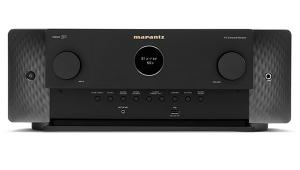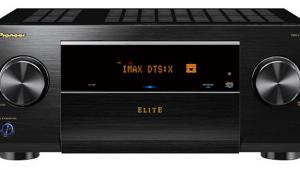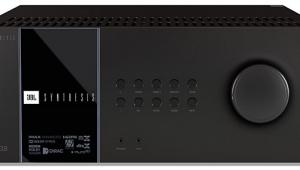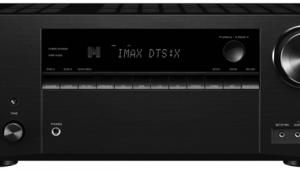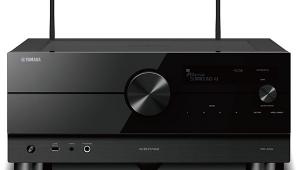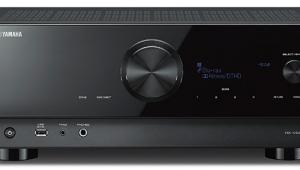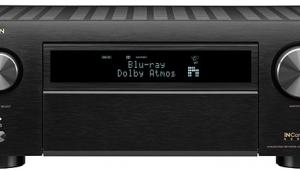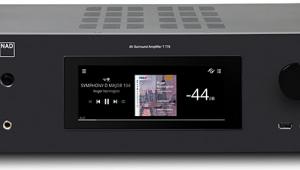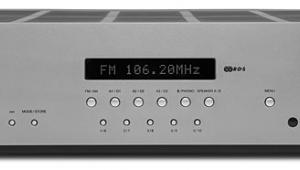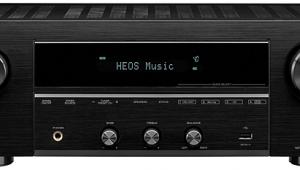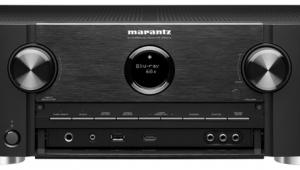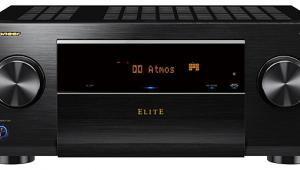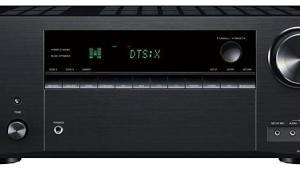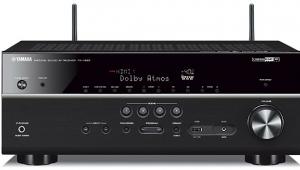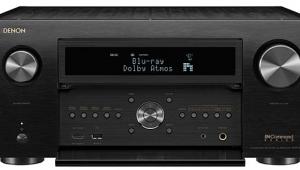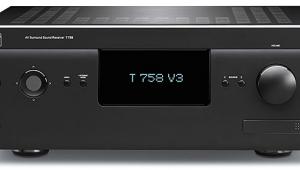Pioneer Elite VSX-49TX A/V receiver Measurements
All power measurements are to the nearest watt, at a line voltage of 120V. The Pioneer VSX-49TX's stereo frequency response, measured in the left channel (analog 8-channel input to speaker output), was -0.09dB at 20Hz, -0.08dB at 20kHz, and -0.45dB at 50kHz. The frequency response in Dolby Digital, optical input to speaker out, measured -0.02dB at 20Hz and -0.12dB at 20kHz in the left channel, -0.02dB at 20Hz and -0.11dB at 20kHz in the center channel. With the surround channel set to Small and the crossover frequency set to 50Hz, the response measured -3dB at 52Hz and -6dB at 39Hz. The line output of the LFE channel, relative to its level at 40Hz, was -0.12dB at 20Hz, -3dB at 119Hz, and -6dB at 121Hz.
The signal/noise ratio, A-weighted at 1W into 8ohms, was 103dB. THD+noise in stereo at 1W into 8ohms measured 0.022% at 20Hz, 0.015% at 1kHz, and 0.008% at 20kHz. At 2W into 4ohms, the corresponding results were 0.023% at 20Hz, 0.016% at 1kHz, and 0.009% at 20kHz.
With six channels driven into 8ohms (our test bench load is limited to six channels), the VSX-49TX clipped (1% THD+noise) at 123W at 20Hz and 129W at 1kHz. With six channels driven into 4ohms, clipping occurred at 187W at 20Hz and at 201W at 1kHz. The receiver shut down on the latter test from a blown internal fuse, but functioned normally again when the fuse was replaced. This test is extremely challenging; such a failure would be very unlikely in normal operation, even high-level playback of the most explosive music or soundtrack. With five channels driven into 4ohms, the Pioneer clipped at 196W per channel at 20Hz and 209Wpc at 1kHz, left channel measured, without shutting down. The output with five channels driven into 8ohms was 133W at 20Hz and 137W at 1kHz. With two channels driven at 1kHz, clipping occurred at 168Wpc into 8ohms and at 241Wpc into 4ohms, left channel measured, at 1kHz.—Thomas J. Norton
